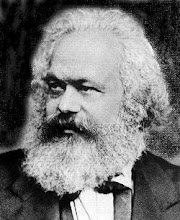Professor Keith Beven and his splendid beard have been awarded the prestigious Robert E. Horton Medal by the American Geophysical Union. Established in 1974, the Horton Medal is named in honor of Robert E.
Horton, who made significant contributions to the study of the
hydrologic cycle. The Horton Medal is awarded not more than once
annually to an individual “for outstanding contributions to hydrology.” You may recognise Professor Beven from his previous exposure on
Academic Beards, his visage used as an icon on
Academic Beards on Twitter, and his starring role in
Academic Beards: Some Say Academic Beards. You might be able to tell we have a soft spot for Professor Keith Beven's beard. We don't entirely understand what it is he does because it's a little modern for our academic tastes, but clearly the Earth and Space Science community think very highly of him. Congratulations on your recent honour Prof Keith from all the committee at Academic Beards.
http://sites.agu.org/honors/winners/keith-beven/
 0
comments
Monday, 31 December 2012
0
comments
Monday, 31 December 2012








